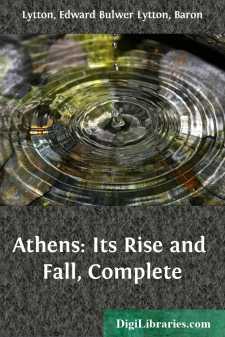Categories
- Antiques & Collectibles 13
- Architecture 36
- Art 48
- Bibles 22
- Biography & Autobiography 815
- Body, Mind & Spirit 144
- Business & Economics 28
- Children's Books 18
- Children's Fiction 14
- Computers 4
- Cooking 94
- Crafts & Hobbies 4
- Drama 346
- Education 58
- Family & Relationships 59
- Fiction 11833
- Games 19
- Gardening 17
- Health & Fitness 34
- History 1378
- House & Home 1
- Humor 147
- Juvenile Fiction 1873
- Juvenile Nonfiction 202
- Language Arts & Disciplines 89
- Law 16
- Literary Collections 686
- Literary Criticism 179
- Mathematics 13
- Medical 41
- Music 40
- Nature 179
- Non-Classifiable 1768
- Performing Arts 7
- Periodicals 1453
- Philosophy 65
- Photography 2
- Poetry 896
- Political Science 203
- Psychology 44
- Reference 154
- Religion 515
- Science 126
- Self-Help 85
- Social Science 82
- Sports & Recreation 34
- Study Aids 3
- Technology & Engineering 59
- Transportation 23
- Travel 463
- True Crime 29
Our website is made possible by displaying online advertisements to our visitors.
Please consider supporting us by disabling your ad blocker.
Night and Morning, Volume 4
Description:
Excerpt
CHAPTER I.
"O that sweet gleam of sunshine on the lake!"
WILSON'S City of the Plague
If, reader, you have ever looked through a solar microscope at the monsters in a drop of water, perhaps you have wondered to yourself how things so terrible have been hitherto unknown to you—you have felt a loathing at the limpid element you hitherto deemed so pure—you have half fancied that you would cease to be a water-drinker; yet, the next day you have forgotten the grim life that started before you, with its countless shapes, in that teeming globule; and, if so tempted by your thirst, you have not shrunk from the lying crystal, although myriads of the horrible Unseen are mangling, devouring, gorging each other in the liquid you so tranquilly imbibe; so is it with that ancestral and master element called Life. Lapped in your sleek comforts, and lolling on the sofa of your patent conscience—when, perhaps for the first time, you look through the glass of science upon one ghastly globule in the waters that heave around, that fill up, with their succulence, the pores of earth, that moisten every atom subject to your eyes or handled by your touch—you are startled and dismayed; you say, mentally, "Can such things be? I never dreamed of this before! I thought what was invisible to me was non- existent in itself—I will remember this dread experiment." The next day the experiment is forgotten.—The Chemist may purify the Globule—can Science make pure the World?
Turn we now to the pleasant surface, seen in the whole, broad and fair to the common eye. Who would judge well of God's great designs, if he could look on no drop pendent from the rose-tree, or sparkling in the sun, without the help of his solar microscope?
It is ten years after the night on which William Gawtrey perished:—I transport you, reader, to the fairest scenes in England,—scenes consecrated by the only true pastoral poetry we have known to Contemplation and Repose.
Autumn had begun to tinge the foliage on the banks of Winandermere. It had been a summer of unusual warmth and beauty; and if that year you had visited the English lakes, you might, from time to time, amidst the groups of happy idlers you encountered, have singled out two persons for interest, or, perhaps, for envy. Two who might have seemed to you in peculiar harmony with those serene and soft retreats, both young—both beautiful. Lovers you would have guessed them to be; but such lovers as Fletcher might have placed under the care of his "Holy Shepherdess"— forms that might have reclined by
"The virtuous well, about whose flowery banks
The nimble-footed fairies dance their rounds
By the pale moonshine."
For in the love of those persons there seemed a purity and innocence that suited well their youth and the character of their beauty. Perhaps, indeed, on the girl's side, love sprung rather from those affections which the spring of life throws upward to the surface, as the spring of earth does its flowers, than from that concentrated and deep absorption of self in self, which alone promises endurance and devotion, and of which first love, or rather the first fancy, is often less susceptible than that which grows out of the more thoughtful fondness of maturer years....












